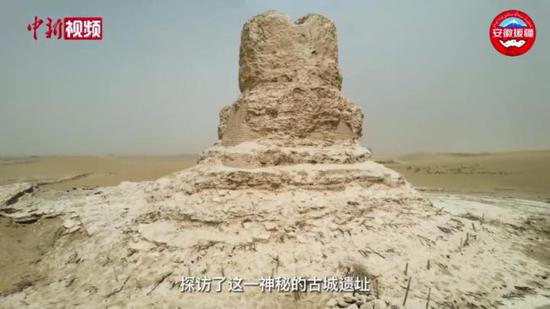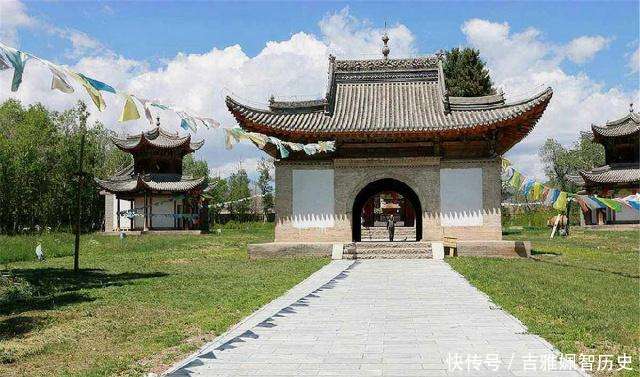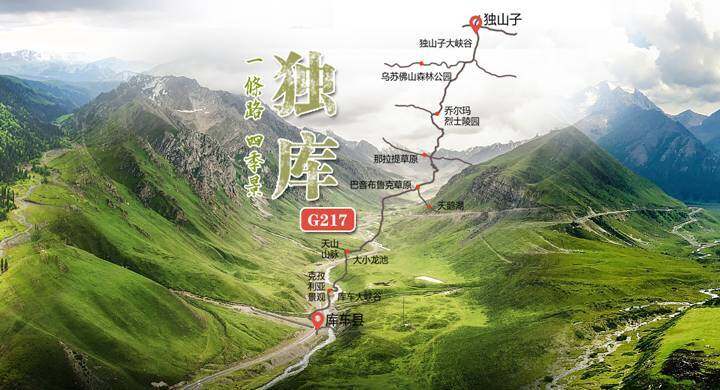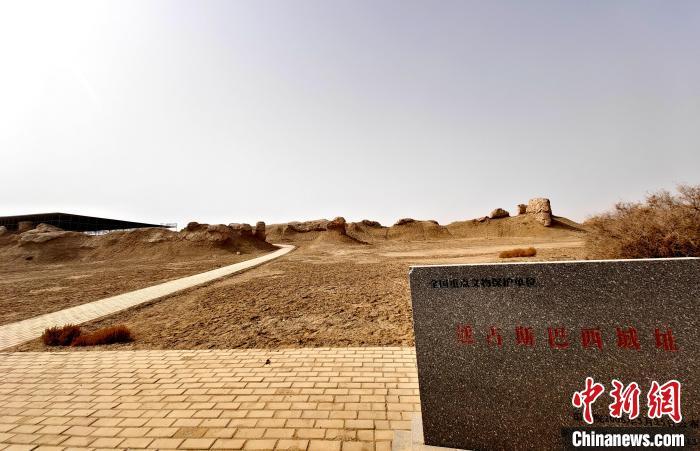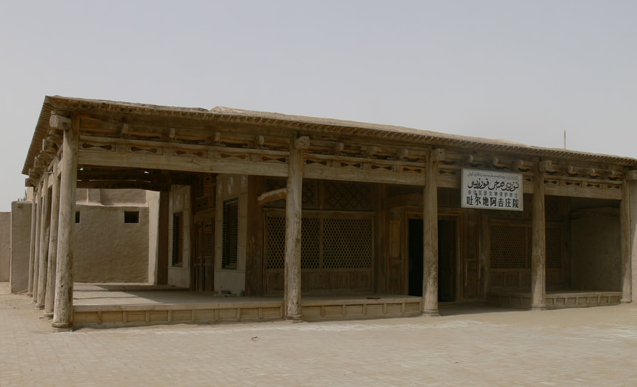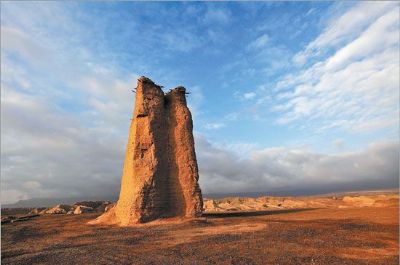Unveiling the Mysteries of Aksu Guizi Gucheng: Your Next Adventure Awaits
An Essential Guide to Visiting Aksu Guizi Gucheng
In This Guide
- An Essential Guide to Visiting Aksu Guizi Gucheng
- The Rich History of Aksu Guizi Gucheng
- Main Highlights: What to See at Aksu Guizi Gucheng
- Planning Your Visit: A Practical Guide
- Tickets, Hours, and Booking
- How to Get There
- Local Cuisine and Accommodation
- Frequently Asked Questions
- Final Thoughts on Your Trip
Nestled in the heart of Xinjiang’s Aksu region, the ancient city of Aksu Guizi Gucheng (龟兹故城), also known as the ruins of Kucha, stands as a remarkable testament to the rich tapestry of history that shaped the Silk Road. This archaeological site, located just two kilometers west of Kucha County, invites visitors into a world where the echoes of the past resonate through time-worn walls. Once a flourishing political and cultural hub during the Han and Tang dynasties, Aksu Guizi Gucheng served as a vital crossroads for trade and cultural exchange between the East and West.
The remnants of the city, framed by three surviving walls, provide a glimpse into its grandeur, with structures that date back over two millennia. Archaeological excavations have unearthed a wealth of artifacts, including pottery, bronze items, and tools, which offer invaluable insights into the daily lives, artistic expressions, and spiritual practices of its ancient inhabitants. As you stroll through this evocative landscape, the ruins tell a story of resilience and transformation, showcasing how the city thrived as a center of Buddhist learning and artistic achievement.
Visitors to Aksu Guizi Gucheng can immerse themselves in the tranquil surroundings, where the beauty of the Tianshan mountains serves as a stunning backdrop. This site not only appeals to historians and archaeologists but also captivates travelers seeking to connect with the profound cultural heritage of the region. Whether you are an adventurer, a culture enthusiast, or simply seeking a serene escape, Aksu Guizi Gucheng promises an unforgettable journey through time, illuminating the enduring spirit of an ancient civilization that continues to inspire awe today.
The Rich History of Aksu Guizi Gucheng
Aksu Guizi Gucheng, also known as the ancient city of Kucha, is a historical landmark located in the Aksu region of Xinjiang, China. Its roots stretch back to the 2nd century BCE, flourishing particularly during the Han and Tang dynasties. As a vital hub along the ancient Silk Road, Guizi served not only as a crucial trade stop but also as a center for cultural exchange, especially in the dissemination of Buddhism.
The city of Guizi was once the capital of the ancient Kucha Kingdom, which was known for its prosperity and vibrant cultural life. During the Han Dynasty, particularly in AD 91, the region was recognized as a political center when Ban Chao, a prominent military leader, established the Western Protectorate here. This appointment marked the beginning of Guizi’s significance as a base for government operations in the Western Regions, where it played a pivotal role in managing trade routes and facilitating cultural interactions between the East and West.
The Tang Dynasty further solidified Guizi’s status as a political and cultural powerhouse. The establishment of the Anxi Protectorate in the city during the reign of Emperor Taizong in the 7th century underscored its importance. Guizi became a melting pot of diverse cultures, where music, art, and religion flourished. The area was renowned for its skilled musicians and dancers, and the prominent monk Xuanzang documented its vibrant cultural landscape in his travel accounts.
Architecturally, the remnants of Guizi Gucheng reveal an irregular square layout, with walls that once stretched approximately 8,000 meters, though much of it has succumbed to the ravages of time. Today, the remaining structures include fragments of walls and foundations that hint at the grandeur of what was once a bustling city. Archaeological excavations have uncovered a wealth of artifacts, including pottery, bronze items, and coins from various dynasties, providing invaluable insights into the daily life and economic activities of its inhabitants.
Despite its decline by the time of the Song and Yuan dynasties, Guizi Gucheng remains a significant site for understanding the interplay of trade, culture, and politics along the Silk Road. It stands as a testament to the historical richness of the Kucha region, attracting scholars and tourists alike who seek to explore the remnants of this ancient civilization and its contributions to the cultural tapestry of China and beyond.
Main Highlights: What to See at Aksu Guizi Gucheng
Aksu Guizi Gucheng, also known as the Ancient City of Kucha, is a site rich in history and cultural significance, located about two kilometers west of Kucha County in the Aksu Region of Xinjiang, China. This archaeological treasure offers visitors a glimpse into the grandeur of an ancient civilization that flourished along the Silk Road.
Historical Significance
The ruins of Aksu Guizi Gucheng date back to the Han and Tang Dynasties, serving as a political center for the ancient state of Guizi. The city was strategically important, acting as a major hub for trade and cultural exchange between the East and West. Its walls, which still stand in parts, are remnants of its former glory, encircling an area of nearly eight kilometers.
Architectural Remnants
Despite the erosion caused by time and nature, three of the city’s walls—north, east, and south—remain partially intact, allowing visitors to appreciate the scale and craftsmanship of ancient fortifications. The walls, made from compacted earth, rise between two to seven meters high, punctuated by watchtowers every 40 meters. The layout of the city reflects a unique irregular square design, which is intriguing for architecture enthusiasts.
Archaeological Findings
The site has yielded a wealth of artifacts that provide insights into the daily life and culture of its inhabitants. Excavations have uncovered stone tools, pottery shards, and metal objects from various eras, all of which hold significant archaeological value. These findings are crucial for understanding the historical transitions and cultural exchanges that occurred along the Silk Road.
Cultural Insights
Visiting Aksu Guizi Gucheng is not just a journey through ruins; it’s an opportunity to learn about the rich tapestry of the culture that thrived here. The ancient city was known for its flourishing arts, especially music and dance, as noted by the famous monk Xuanzang in his accounts of the Silk Road. The echoes of this vibrant cultural heritage can still be felt in the surrounding communities today.
Scenic Surroundings
Set against a backdrop of stunning natural landscapes, the ancient city is enveloped by the majestic Tianshan Mountains. The area offers breathtaking views and a serene atmosphere, making it an ideal spot for both history buffs and nature lovers. The juxtaposition of ancient ruins and natural beauty creates a captivating experience for all visitors.
Access and Amenities
Currently, there is no admission fee to explore Aksu Guizi Gucheng, making it an accessible destination for travelers. Nearby attractions, such as the Kucha Grand Mosque and the Kizil Grottoes, enrich the experience, providing a well-rounded exploration of the region’s history and culture.
In summary, Aksu Guizi Gucheng is a remarkable destination for those interested in ancient history, archaeology, and the cultural heritage of the Silk Road. Its well-preserved ruins, rich archaeological finds, and stunning natural setting make it a must-visit for anyone traveling through Xinjiang.
Planning Your Visit: A Practical Guide
Practical Guide to Visiting Aksu Guizi Gucheng (龟兹故城)
When planning your visit to Aksu Guizi Gucheng, also known as the Ancient City of Kucha, it’s essential to be well-prepared. This historical site, located in the Aksu region of Xinjiang, offers travelers a glimpse into the rich tapestry of Chinese history and the Silk Road’s cultural exchanges. Here’s a comprehensive guide to help you make the most of your trip.
Getting There
Location: Aksu Guizi Gucheng is situated approximately 2 kilometers west of Kucha city, in Pirang village. The site is easily accessible by taxi or local transportation from Kucha.
Transport Options:
– By Air: The nearest airport is Kucha Airport (KCA), which has limited flights. From the airport, you can take a taxi to the ancient city.
– By Train/Bus: Kucha can be reached by train or long-distance bus from major cities like Urumqi. Once in Kucha, local taxis or buses can take you to the site.
Opening Hours and Admission
Opening Hours: The site is generally open from 10:30 AM to 7:00 PM, but it’s advisable to check locally for any changes.
Admission Fees: Currently, there is no entrance fee to Aksu Guizi Gucheng, making it a cost-effective option for history enthusiasts. However, nearby attractions such as Kucha Great Mosque may charge entry fees.
What to Expect
Historical Significance: Aksu Guizi Gucheng was once a flourishing center of trade and culture, particularly during the Han and Tang dynasties. The ruins include remnants of ancient walls and structures, providing insights into the architectural styles of the time.
Archaeological Finds: Visitors can see excavated artifacts, including pottery, bone tools, and ancient coins, which highlight the cultural and economic activities that took place here. The site is an ideal spot for those interested in archaeology and ancient civilizations.
Surrounding Sites: While visiting Aksu Guizi Gucheng, consider exploring nearby attractions:
– Subashi Ancient City: A short distance away, this ancient site features well-preserved ruins and offers guided tours.
– Kizil Grottoes: Renowned for their Buddhist art, these caves are a must-visit for art lovers and provide a deeper understanding of the region’s religious history.
Tips for Visitors
- Stay Hydrated: The climate in Xinjiang can be dry and hot, especially in the summer months. Carry water and stay hydrated during your exploration.
- Wear Comfortable Shoes: The site involves walking over uneven terrain, so comfortable footwear is essential.
- Respect Local Customs: As the region has a significant Muslim population, be mindful of local customs and dress modestly, particularly when visiting religious sites.
- Photography: Capture the stunning landscape and ruins, but be respectful of the site’s integrity and avoid climbing on ancient structures.
Accommodation and Dining
Where to Stay: Kucha has a range of accommodations from budget hotels to mid-range options:
– Kucha Lidu Hotel: A well-rated hotel offering modern amenities.
– Local Guesthouses: For a more authentic experience, consider staying at a guesthouse run by local families.
Dining Options: Local cuisine is a highlight. Try traditional dishes such as:
– Nang: A type of flatbread popular in Xinjiang.
– Lamb Skewers: A local favorite grilled to perfection.
– Fruits: Xinjiang is known for its delicious melons and apricots.
Conclusion
Aksu Guizi Gucheng is more than just a historical site; it’s a portal to the past, revealing the intricate connections of the Silk Road. With its rich history, archaeological wonders, and beautiful surroundings, it offers a unique experience for travelers. Be prepared, respect the local culture, and enjoy your exploration of this ancient gem.
Tickets, Hours, and Booking
Visitors to Aksu Guizi Gucheng (龟兹故城) will be pleased to know that access to this historical site is currently free of charge. This allows guests to explore the remnants of the ancient city without the burden of an entry fee, making it an attractive option for travelers interested in history and archaeology.
While there is no admission fee for the ancient city itself, it’s important to note that some nearby attractions may require tickets. For instance, the Kucha Grand Mosque typically has a modest entrance fee of around 15 RMB. This additional cost provides access to further insights into the local culture and history, enriching your visit.
The site is located approximately two kilometers west of Kucha County, easily accessible for those looking to delve into the rich heritage of the region. As you wander through the remnants of the city walls and explore the archaeological findings, you’ll gain a deeper appreciation for the historical significance of Guizi, once a key hub along the Silk Road.
In summary, Aksu Guizi Gucheng offers an affordable opportunity to immerse yourself in ancient history, with the added option of visiting nearby attractions for a more comprehensive experience. Don’t forget to check the opening hours and consider combining your visit with other cultural sites to maximize your journey through this fascinating area.
How to Get There
Getting to Aksu Guizi Gucheng (龟兹故城) is an adventure in itself, as the ancient city is nestled in the Xinjiang region of China, specifically in the Kucha County, around 2 kilometers west of the town center. Here, we provide a comprehensive guide on how to reach this historical site and navigate the surrounding area.
By Air
The nearest major airport to Aksu Guizi Gucheng is Aksu Airport (KCA), located approximately 40 kilometers northeast of Kucha. This airport offers limited domestic flights, primarily connecting to major cities like Ürümqi, the capital of Xinjiang. Upon arrival at Aksu Airport, travelers can hire a taxi or arrange for a local shuttle service to Kucha County. The drive typically takes around 45 minutes.
By Train
Kucha is accessible via the Kucha Railway Station, which is well-connected to several key cities in Xinjiang. High-speed trains frequently run from Ürümqi, making it a convenient option for travelers. The train journey provides scenic views of the picturesque landscapes of Xinjiang. Once at Kucha Railway Station, you can take a taxi or a local bus to reach Aksu Guizi Gucheng.
By Bus
For those preferring ground transportation, long-distance buses operate from various cities to Kucha. Buses from Ürümqi and other nearby regions depart regularly, making this an affordable and flexible option. The bus station in Kucha is centrally located, and from there, you can easily find a taxi or a shared minibus to the ancient city.
Local Transportation
Once in Kucha, reaching Aksu Guizi Gucheng is straightforward. The site is about a 10-minute taxi ride from the town center. Taxis are readily available, and it’s advisable to negotiate the fare or ensure that the meter is running. Alternatively, local tour operators may offer guided tours that include transportation to the site.
Tips for Travelers
- Language: English is not widely spoken in this region, so having a translation app or a phrasebook can be helpful.
- Cash: While larger cities may accept cards, smaller towns and sites like Aksu Guizi Gucheng primarily operate on cash. Ensure you have local currency (Chinese Yuan) available.
- Weather Considerations: Xinjiang experiences a range of temperatures, so check the weather forecast before your visit and dress appropriately.
- Entry Fees: Currently, entry to Aksu Guizi Gucheng does not require a ticket, but surrounding attractions may have nominal fees.
This comprehensive transportation guide will help you navigate your journey to Aksu Guizi Gucheng, allowing you to immerse yourself in the rich history and culture of this ancient site. Whether you choose to fly, take a train, or travel by bus, the journey is sure to be filled with memorable experiences.
Local Cuisine and Accommodation
When exploring the historical wonders of Aksu Guizi Gucheng (龟兹故城), it’s essential to complement your journey with delightful dining experiences and comfortable accommodation. Here’s a guide to help you make the most of your stay in this culturally rich region.
Dining Options
-
Bixi Bage Fast Food (碧西巴格快餐)
Located just 1.2 kilometers from the ancient city, this fast-food spot offers a quick and tasty meal for travelers on the go. It’s a perfect choice for those wanting to grab a bite before heading out for a day of exploration. -
Muzate Burger and Milk Tea (穆扎特汉堡奶茶)
About 1.1 kilometers away, this eatery serves a variety of Western-style fast food, including burgers and refreshing milk tea. It’s a great place to relax after a day of sightseeing. -
Bai Ge Zha Ti Restaurant (拜阁扎提餐厅)
Situated approximately 1.4 kilometers from the Guizi Gucheng site, this restaurant specializes in local cuisine. Here, you can indulge in authentic Xinjiang dishes, showcasing the flavors that have been influenced by the region’s diverse cultures. -
Ai Bi Ke (爱必客)
Located in the Tianhua Jinzuo complex, this restaurant offers a pleasant dining atmosphere with a menu that integrates both Western and local flavors. It’s 1.4 kilometers from the ancient ruins, making it a convenient dining option.
Where to Stay
-
Kuche Lidu Hotel (库车丽都大酒店)
Rated highly by guests, this hotel offers modern amenities and comfortable rooms. With prices starting around HKD 220, it provides a solid choice for travelers seeking convenience without compromising comfort. -
Kuche Mijiang Qiao She Inn (库车覓疆桥舍民宿)
This charming guesthouse, rated 4.7, gives visitors a taste of local hospitality. Priced at approximately HKD 266, it’s an excellent option for those looking for a more intimate, homely atmosphere. -
Kuche Hotel (库车饭店)
A three-star hotel with a rating of 4.6, the Kuche Hotel is budget-friendly, with rates starting from HKD 147. It’s well-located, making it easy to access local attractions. -
This Place B&B (这里有间房民宿)
Offering a unique experience, this cozy bed-and-breakfast is available for around HKD 101. With its personalized service, it’s ideal for travelers who appreciate a local touch and a more relaxed environment.
Conclusion
Aksu Guizi Gucheng is not just about its historical significance; it is also about experiencing the local culture through its food and hospitality. With a variety of dining options and accommodations, visitors can enjoy both the ancient and contemporary charms of this fascinating region. So, after a day of exploring the remnants of an ancient civilization, treat yourself to a delightful meal and a restful night’s sleep to recharge for more adventures ahead.
Frequently Asked Questions
-
What are the opening hours for Aksu Guizi Gucheng?
Aksu Guizi Gucheng is typically open from 10:30 AM to 7:00 PM. It’s advisable to check local listings or contact the site directly for any changes to the schedule. -
Is there an entrance fee to visit Aksu Guizi Gucheng?
Currently, there is no entrance fee to visit Aksu Guizi Gucheng, making it a great option for travelers looking to explore historical sites without a cost. However, nearby attractions may have their own fees. -
What historical significance does Aksu Guizi Gucheng hold?
Aksu Guizi Gucheng was a pivotal city along the ancient Silk Road, flourishing during the Han and Tang dynasties. It served as a political and cultural hub, reflecting the rich history and cultural exchanges in the region. -
What can I expect to see at the ruins?
Visitors can explore remnants of ancient walls and structures, including the remains of the city’s fortifications and various excavated artifacts such as pottery, bronze items, and tools that highlight the daily life and culture of ancient Guizi. -
How do I get to Aksu Guizi Gucheng?
Aksu Guizi Gucheng is located approximately 2 kilometers west of Kucha City in the Xinjiang Uygur Autonomous Region. It is accessible by taxi or local transportation from Kucha, making it easy to visit. -
Are there guided tours available?
Yes, guided tours are available and can enhance your experience by providing insights into the history and significance of the site. Check with local tour operators or visitor centers for more information on tour options. -
What other attractions are near Aksu Guizi Gucheng?
Nearby attractions include the Kucha Grand Mosque, Kizil Grottoes, and the Su Ba Shi Ancient City. These sites offer additional cultural and historical context to your visit. -
What is the best time of year to visit Aksu Guizi Gucheng?
The best time to visit is during spring and autumn when the weather is mild and pleasant. This allows for a more comfortable exploration of the archaeological site and surrounding areas.
Final Thoughts on Your Trip
Visiting Aksu Guizi Gucheng is not merely an exploration of ancient ruins; it is an invitation to step into the rich tapestry of history that has woven itself through centuries. As you wander through the remnants of this once-thriving city, you can almost hear the echoes of its past—musicians playing, traders bargaining, and scholars debating the great philosophies of their time. The site stands as a testament to the cultural exchanges that flourished along the Silk Road, making it a vital link between East and West.
The journey through Aksu Guizi Gucheng is enhanced by its stunning natural surroundings, where the rugged beauty of the Tianshan Mountains meets the serenity of the ancient landscape. Each artifact unearthed from this site, from pottery shards to ancient coins, tells a story of resilience and innovation, reflecting a civilization that thrived amidst the challenges of its era.
For travelers seeking a deeper understanding of ancient cultures, Aksu Guizi Gucheng offers an unparalleled experience. Whether you are drawn by history, archaeology, or simply the allure of the past, this site promises to leave you inspired and awed. As you stand among the remnants of stone walls and ancient pathways, take a moment to reflect on the countless lives that have come before you, and let the spirit of the Silk Road captivate your imagination.
